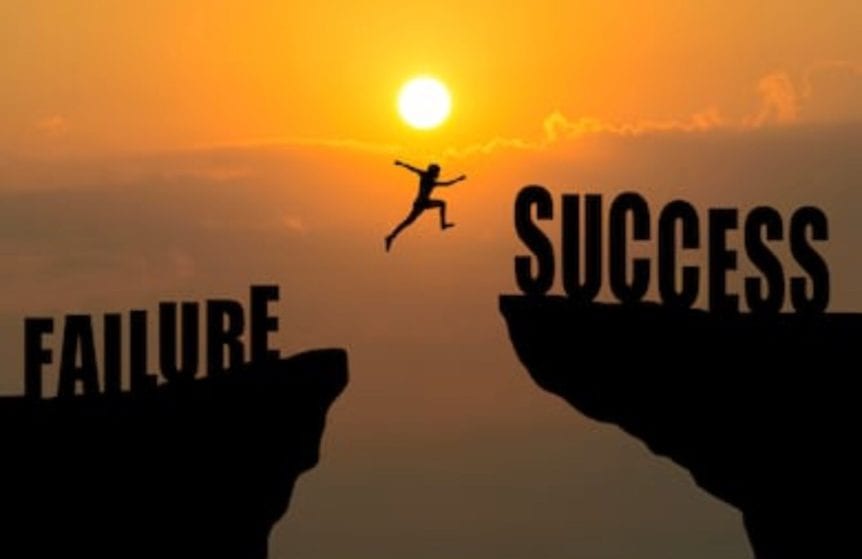Failing vs Failure

The following post is courtesy of Robert Glazier’s “Friday Forward” from May 5, 2023.
While not everyone is a sports fan, sports undeniably can offer us valuable lessons for life and leadership.
A prime example occurred last week during the NBA basketball playoffs. The Milwaukee Bucks, who had the best record in the league, suffered a shocking and resounding defeat in the first round of the postseason.
Perhaps the most resonant moment of the series came after it ended, during a press conference featuring Bucks star Giannis Antetokounmpo. Antetokounmpo, a two-time NBA Most Valuable Player and one of the world’s best basketball players, was asked by a reporter if he considered the season to be a failure. His frustrated but poignant response quickly went viral.
Here are some snippets of what he said to the reporter.
“Do you get a promotion every year on your job? [reporter responds no] No, right? So, every year you work is a failure, yes or no? No. Every year you work, you work towards something, towards a goal. It’s not a failure; it’s steps to success. There’s always steps to it.”
“There’s no failure in sports. There’s good days, bad days. Some days you’re able to be successful, some days you’re not. Some days it’s your turn, some days it’s not your turn. And that’s what sports is about. You don’t always win. Sometimes other people win. And this year somebody else is going to win, simple as that.”
“Michael Jordan played 15 years, won six championships. The other nine years was a failure? That’s what you’re telling me?”
Although he did not make this distinction directly, I believe Antetokounmpo was differentiating between the concepts of failing and failure. While these two terms are closely related, they have a meaningful distinction.
In life, we repeatedly fail, whether we lose a game that can only have one winner, fall short of a personal goal, or fail to meet the expectations of a boss or customer. Famously, Thomas Edison failed to create a long-lasting lightbulb over 1000 times before he succeeded. It is through these instances of failing that we learn from mistakes, adjust our approach, and come back better and stronger the next time.
Failure is different from failing. Failure comes when we stop trying after we fail; it’s when we don’t pick ourselves up and continue working towards our goals. Failure is also when we give in to fear and self-doubt, and use that as an excuse to not even show up the next time around.
One of the biggest issues with our education system and prevalent parenting style today is that we don’t teach or model for kids that it’s okay and normal to fail. We treat failing as something to avoid at all costs even when the stakes are objectively low, as they should be for any child in any endeavor that is not life and death.
This relentless pursuit of perfection has many kids legitimately feeling that their hopes and dreams are shattered if they fail to make a sports team or get a single B in a class that doesn’t really interest them.
Paradoxically, this fear of failing is likely the largest cause of actual failure when these same kids enter the real world and face the inevitable adversity life brings. As Antetokounmpo notes, every season in life has winners and losers. However, just as winning one day doesn’t mean you will remain successful forever, failing doesn’t make you a failure. The only true failures are suffered by people who give up as soon as something gets hard or after they fall short on their first attempt.
If you talk with anyone at the top of their field, they will be quick to share how failing strengthened their resolve, and how their many shortcomings were critical to their eventual success.
Antetokounmpo’s best advice from his two-minute speech, which I encourage you to watch, might also have been the simplest: ”You don’t always win. Sometimes other people win.”
We need to remember to embrace the lessons that come from failing, while at the same time using those experiences as opportunities to grow and become better. Strive for progress, not perfection.
About Robert Glazer:

Bob Glazer is the founder and CEO of global partner marketing agency, Acceleration Partners.Under Robert’s leadership. He is also the co-founder and Chairman of BrandCycle. A serial entrepreneur, Bob has a passion for helping individuals and organizations build their capacity to elevate.
Acceleration Partners has become a recognized global leader in the affiliate and partner marketing industry, receiving numerous industry and company culture awards.
Bob was also named to Glassdoor’s list of Top CEO of Small and Medium Companies in the US, ranking #2.
Bob shares his ideas and insights via Friday Forward, a popular weekly inspirational newsletter that reaches over 100,000 individuals and business leaders across 50+ countries. He is the host of the Elevate Podcast, where Bob sits down with leaders, thinkers and authors to discuss personal growth and helping others live their best lives. Bob is also the Wall Street Journal, USA Today and international bestselling author of four books: Elevate, Friday Forward, Performance Partnerships and How To Make Virtual Teams Work.
A regular columnist for Forbes, Inc. and Entrepreneur, Bob’s writing reaches over five million people around the globe each year who resonate with his topics, which range from performance marketing and entrepreneurship to company culture, capacity building, hiring and leadership. Worldwide, he is also a sought-after speaker by companies and organizations, especially on subjects related to business growth, culture, mindful transitions, building capacity and performance. Bob’s website can be found at: https://www.robertglazer.com/



